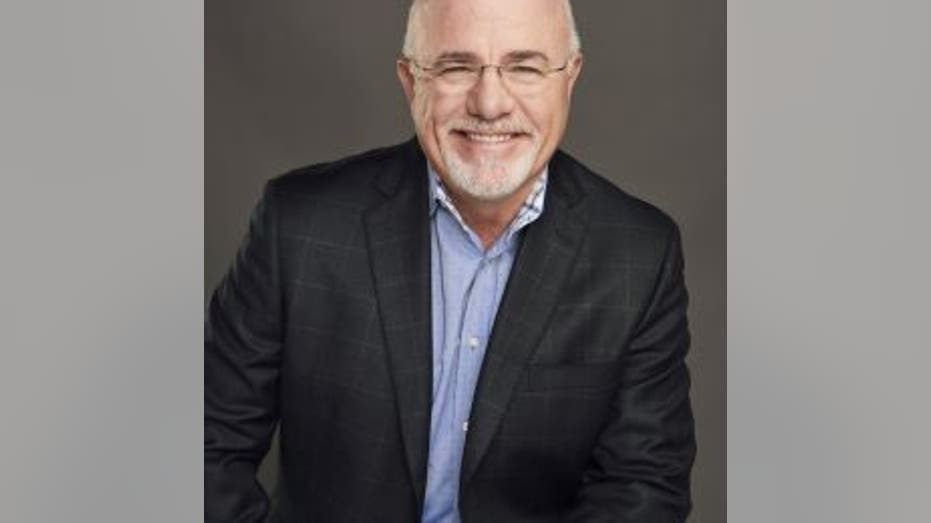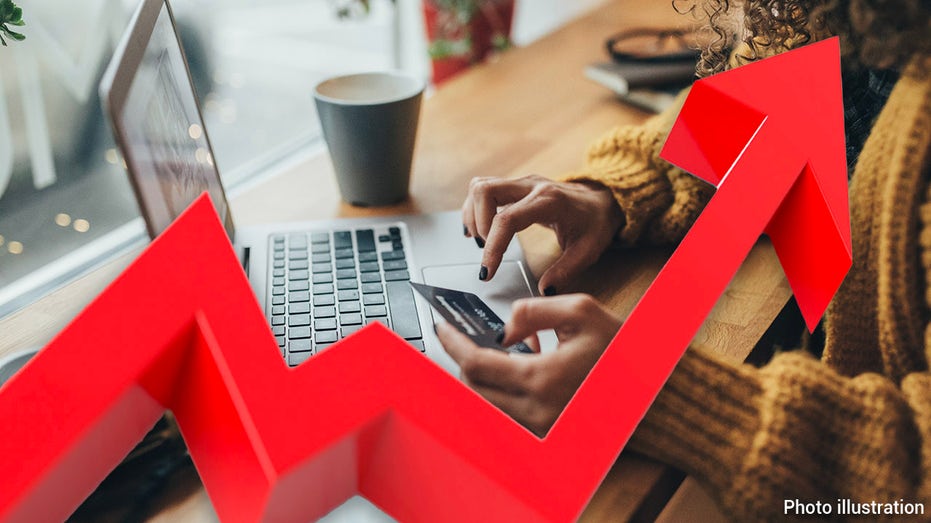Dave Ramsey shares the secrets of managing stress over rising costs of travel, gas and more
Personal finance expert and best-selling author reveals a path to sanity amid the chaos
Dave Ramsey: Inflation making it hard for Americans to ‘keep our head up’
Ramsey Solutions CEO Dave Ramsey and mental health expert Dr. John Delony discuss the correlation between your money and mental wellness.
Costs are rising — and so is stress among Americans all over the country.
In a new telephone interview with FOX Business, Dave Ramsey, personal finance expert, eight-time #1 national best-selling author and host of "The Ramsey Show," acknowledged that, yes, "people who are sitting down and doing their budgets right now are getting blindsided by today's prices that are completely, in many cases, out of control."
AMERICANS' INFLATION FEARS HOVERED NEAR RECORD HIGHS IN APRIL, SURVEY SHOWS
But there's a sane way through this, he said.
"Having worked with people in financial distress for 30 years, my team and I have figured out that there's more anxiety from the unknown than from bad news."

Dave Ramsey is shown in Nashville, Tennessee. "It's a weird thing, but when you write items down" in your budget — they no longer have the same power over you, he said. He explained why in an interview with Fox News Digital. (Beth Gwinn/Getty Images/iStock / Getty Images)
Ramsey said, "What this means right now, in this discussion, is sitting down and doing a budget and looking at everything" clearly, no matter how difficult or unpleasant the facts are right now, and no matter who caused the problem at hand.
Gas prices are high, said Ramsey bluntly, "because [President] Biden screwed up the energy pipeline."
DAVE RAMSEY ON HIGH GAS PRICES AND 6 WAYS TO SAVE MONEY
That said — people need to push through to a practical solution. It's a way of taking control.
‘Write it down — look at it’
"OK, so gas costs more [right now]," Ramsey said. "So I'm going to put that down in my budget."
"This is real. And it is a real problem. But if it's not quantified — then it's a much bigger source of anxiety."
"It's a weird thing, but when you write items down like this," they no longer have "the power to own your stress level," he said.
Ramsey said consumers can look at the item written down and say, "OK, I'll deal with that."

Dave Ramsey shared insights and advice for handling money worries today. His latest number-one best-selling book is "Baby Steps Millionaire." (Ramsey Solutions / Fox News)
Similarly, other costs should get the same treatment and examination, he said.
"OK, so your rent went up. Write it down. Look at it [on the page]. Your grocery bill is going up because of meat or bread or whatever it is — OK, write it down."
Added Ramsey, "When [worries like this] are in your head, they're 10 times heavier than when you write them down. It's like letting the monster out of the closet and you find out that he's not really a monster. It's just a stuffed animal with a shadow."
"'You could move somewhere else [to pay less rent].' And the person will say, ‘Oh, OK. Well, yeah. I guess I could.'"
He said, "But this is not a stuffed animal with a shadow, of course. This is real. And it is a real problem. But if it's not quantified, then it's a much bigger source of anxiety."

With money issues, "the best way to deal with the anxiety is to develop a plan to attack it, then the anxiety drops," said Dave Ramsey. (iStock / iStock)
Another example, he said — "and I've been doing this on the radio for a living for many years — is when someone calls the program and says, ‘I’m completely overwhelmed. I think I need to file for bankruptcy. Here's what going on,' well — we start taking it item by item, line by line," he said.
DAVE RAMSEY'S TIPS TO GROW YOUR WEALTH
"And I'll say to the person, ‘Well, you could sell your car.’ And the person says, ‘Oh, OK. I guess I could.’ And then I'll say, ‘Your rent’s too much. You could move somewhere else [in order to pay less rent].' And the person will say, ‘Oh, OK. Well, yeah. I guess I could.'"
When "people decide to address their financial issues," they often look more closely at their career or job and say, "Oh, wait a minute. I need to make more money."
And on and on, Ramsey said. Basically, "when you start taking it line by line, the monster's teeth are removed," he said.
‘Develop a plan to attack it’
Sure, "the monster is real, and he's big, and it's a problem, and we're not going to minimize it," he added. "But the best way to deal with the anxiety is to develop a plan to attack it, and then the anxiety drops."
Ramsey said that when "people decide to address their financial issues," they often look more closely at their career or job and say, "Oh, wait a minute. I need to make more money."
DAVE RAMSEY ON WHY ‘GET RICH QUICK NEVER WORKS'
That's when they either decide to try to get a raise — or "move to another job that will pay them more."
"When you write it down and say, ‘I need to get more money,’ that's when people go get more money. You begin to address it — and the stress and the math begin to come under control."
‘People can use this to their advantage’
Ramsey also said that until people get their income up or some of these high costs today adjust downward again, "people may be working an extra job — but there's a lot of really good jobs out there right now," he said.

A "now hiring" sign is shown recently posted in Garnet Valley, Pa. (AP Photo/Matt Rourke / AP Newsroom)
"That's the good news. There's a labor shortage in America right now."
The point is, "people can use this to their advantage to create more income — and offset the reality of inflation."
6 REMOTE INTERVIEW JOB TIPS FROM CAREER EXPERTS
He said that if "people just sit in the exact same job, making the exact same money, and all of their costs go up — then they've got real mathematical pressure."
Acknowledge ‘the magic wand’ today
Ramsey also pointed out that "this is the first generation, me included, that has a magic wand in their hands."
"You push a button — and stuff shows up at your house. Think about it: It's amazing," he added — referring to online shopping today, of course, and the near-instant gratification of purchases showing up at home after a few clicks on a phone or laptop.

No one today, said Dave Ramsey, wants to be told, "No, you can't have that." (iStock / iStock)
And "don't tell me no," he added, referring to the way many Americans tend to feel.
No one today, he said, wants to be told, "No, you can't have that."
There's frustration over not being able to find the right home or the desired car, he said — or other items. "And while some people are saying, ‘Well, I’m going to wait until prices come down again,' I'm trying to tell a lot of them, 'They may not be coming down the way you think they will."
Why people feel unsafe — and what to do about it
Dr. John Delony of Ramsey Solutions has for years offered counsel and help to those who are struggling with stress and anxiety; he spent over two decades in crisis response, the firm said.
"A few of the cornerstones of our mental health are safety and autonomy," Delony told Fox News Digital in an email exchange. "When prices of goods and services explode — putting essentials such as bread, milk and gasoline out of reach — people feel unsafe and not in control."
"Additionally, millions of Americans have taken out loans over the last few years to buy expensive vehicles. They took out equity on their homes, began running up their credit cards again, and bought homes that cut deeply into their financial margin. Now the escalation of prices of other goods have made car, home and debt payments — along with any sort of repair — very difficult to manage."
HOME AFFORDABILITY WILL CONTINUE TO BE A PROBLEM, MARKET EXPERT PREDICTS
Delony said, "When people do not feel stable about their ability to get around, to pay for their homes or make their debt payments, they get anxious and scared — and they disconnect from friends and loved ones."
"It’s a disheartening spiral."
Make connections; make lists; make choices
Delony said three key things are important to do in times of anxiety, especially about money.
"First, connect with someone for an outside perspective. This can be a friend, a mentor, a counselor, a spouse, a financial advisor. When we are stressed and alone," he said, "we tend to make quick, ill-advised short-term decisions. Our bodies are not designed to handle stress alone."
BEST MONEY ADVICE FROM A SURPRISING SOURCE
"Second, make a list of the things you can control and the things you cannot control. No amount of worrying will bring down gas prices. No amount of road rage or yelling at spouses or kids will ease the cost of milk or cause Netflix to reconsider a price increase."
"None of this is fun, pleasant or desired, but for millions of us it is absolutely necessary."
"What I can control," added Delony, "is whether I cancel Netflix, forgo milk for a few months (which is what I’ve done in my home), start driving a few Uber shifts a week for some extra cash or begin carpooling to work."
He also said, "None of this is fun, pleasant or desired, but for millions of us it is absolutely necessary."
Dave Ramsey: "When you control the controllables — that's when your hope starts coming back."
Third, "get after the things we can control. When we’re upset or nervous, we tend to downshift and freeze. We stay glued to our electronic devices, consuming more information or unplugging and numbing out. Instead, get your dose of news — and unplug and engage in the things you can control."
Dave Ramsey also said that "when you control the controllables — that's when your hope starts coming back."
How to know when there's truly a problem
"Financially speaking, when people talk with a trusted friend or adviser, dig deep into their budget and find themselves unable to cover their four walls — food, shelter, utilities and transportation — cutting out non-essentials is a sacrifice we can all make," said John Delony.
"Having the electricity or water shut off is a different level of emergency," he added.
GET FOX BUSINESS ON THE GO BY CLICKING HERE
"If a person is unable to get out of bed in the morning or engage in normal daily activities; is uncharacteristically angry, frightened or reaching for numbing agents (like alcohol, more food than normal, or extended time on electronics), they need to call or visit a mental health professional."




















